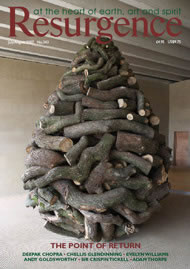RARELY CAN THE saying “You can’t judge a book by its cover” have been as true as in this case: the cover is dreadful! Which makes it all the more extraordinary when you dip in to find that the Wilsons – no relation, they explain – have produced a book packed with insight on one of the defining issues of the 21st century: the eradication of poverty.
Their style is disarming and charming. “When thinking about poverty,” they say, “we’ve tried to think like carbon-based life forms rather than economists.” Whereas the typical business blockbuster these days offers to reveal an impending revolution, the Wilsons reassure us that there is “no new paradigm here, no redefinition of the corporation, no need for a business revolution”. Their ambition sounds deceptively simple: “We hope that a manager who reads this book and then starts talking to a wider range of people and reading from a wider range of sources will start to make better decisions.”
They offer sympathetic, helpful assessments of what it is like to be an expatriate manager or a government bureaucrat in a non-industrialised country. One of their friends “has just been promoted in a major multinational and been told that he’ll be sacked unless he meets his annual targets. It’s hard”, they say, “for him to focus on corporate reputation or long-term profitability or, for goodness’ sake, poverty reduction when his mortgage and his kids’ schooling depend on how much profit his small bit of the company makes over the next twelve months.”
Alternatively, try putting yourself in the shoes of government officials in non-industrialised countries. “They are often incredibly poor,” the Wilsons explain, “operating in a severely dysfunctional bureaucracy, and with very low levels of autonomy.”
In case all of this sounds like apologies for the folk who stall the eradication of poverty, it isn’t. It’s an attempt to provide the reality check needed to ensure that future efforts do not dribble away, as so many have before. The authors stress that poverty is dangerous because of its role as “a crucible for terrorism and instability”, and that it masks some of the greatest potential market opportunities of the new century. But they warn against new forms of irrational exuberance.
For those who would argue that C. K. Prahalad scooped them with his Fortune at the Bottom of the Pyramid, the Wilsons note, “You’d be well advised to read his book first before starting on ours because he does the motivation, the ambition and the shining city on the hill. We’re more interested in replacing a few light bulbs down here in the valley.” If you’re an anti-globaliser, the book’s worth reading just for its discussion of how China’s development has helped pull millions out of poverty. No need to agree on every point; indeed, a key reward is having your assumptions poked.







